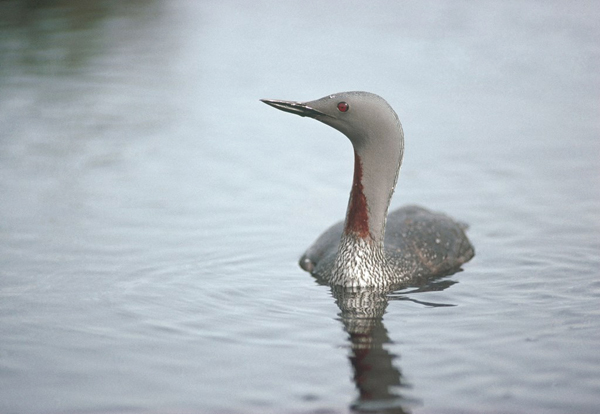Important Orkney waters miss out on protection

RSPB Scotland has raised concerns that Orkney’s crucial wildlife will miss out on legal protection designed to safeguard areas bird hotspots.
The long-awaited declaration of Special Protection Areas (SPAs) will safeguard some of the places that thousands of birds rely on for food and shelter in Scotland’s seas.
Puffins, terns, eiders and long-tailed ducks are among the wildlife that stands to get a boost from the legal protection announced.
The Firth of Forth, and the seas around the remote islands of St Kilda and Foula are among the special areas of Scotland’s coast and seas selected for supporting internationally significant numbers of birds.
However, Scapa Flow and the waters north of Orkney Mainland, both recommended on the basis of scientific evidence as hotspots for seaducks, divers and grebes have been held back.
Sarah Sankey, Orkney area manager at RSPB Scotland said: “The importance of Orkney for seabirds and wintering divers, seaducks and grebes is indisputable not only for their conservation but also for the economy of the islands, the spectacle of breeding and wintering seabirds draws tourists to Orkney to view wildlife.
“It is therefore very disappointing that these crucial sites are not being classified. Any resistance to these designations is particularly disappointing given their importance both for the future of the birds and the economic future of the islands. We seek swift action to ensure the objectives of the SPAs can be met.”
The Scottish Government is required by law to select the most important places for birds on land and sea for special protection.
Until now only breeding colonies on land and the coastal waters near them had been given the SPA status.
This announcement is the first time in Scotland that areas known to be important for birds searching for food have received this type of protection.
The new legal status means that any future development and activity capable of damaging the site must now be strictly controlled.
Orkney is one of the UK’s biggest hotspots for breeding seabirds.
In the summer, around a million seabirds flock to the islands and they are an important home to populations of red-throated divers.
In the winter, its seas are home to internationally important populations of wintering birds including eiders, long-tailed ducks, red-breasted mergansers, red-throated and great northern divers, European shags and Slavonian grebes.
Orkney’s wildlife is renowned for drawing in tourists from across the globe and important to local residents.

